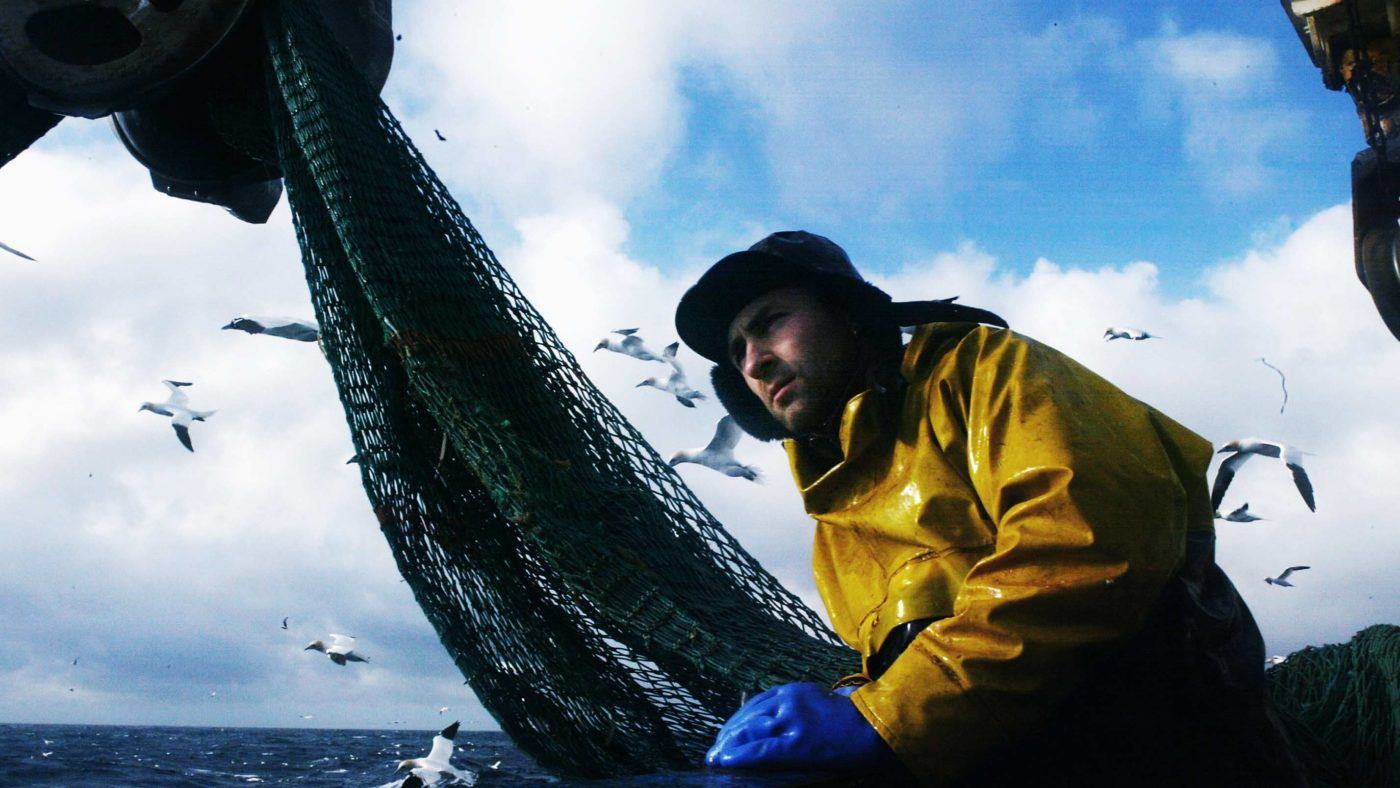Who would have guessed it? The tender ministrations of Brussels seem to have achieved something that so many others – Jamie Oliver to name but one – have failed to do: rationing the consumption of fish and chips in these isles.
We are informed today by the Marine Conservation Society that stocks of haddock in British waters are no longer sustainable. Thus this fish must join cod and plaice as being something we mustn’t eat. Because, you know, we don’t want the seas to be entirely vacuumed clean of little fishies, do we?
The Common Fisheries Policy started out in 1970, and when we joined the EU in 1973 we had to sign up to it. That scientific management of fish stocks was so successful over the decades that the Lisbon Treaty ensconced it as a sole competence of Brussels – an interesting point as competence would be something nice to see in this field. For what has happened, as the rationing shows, is that when the bureaucrats and the planners command the supply of something then supplies of that something vanish.
It’s all there in Garret Hardin’s Tragedy of the Commons. Where there’s an open access, what Hardin calls Marxian, resource, then that is just fine. If the regeneration capacity is greater than the annual demand, then all who want can have simply by taking.
But when that demand runs up against capacity, then demand must be limited in some manner otherwise the commons disappears. Hardin then explains that we can have a government – that is, regulatory – solution which he calls the socialist one. Or we can have a private property one, he says that is capitalist.
Which option works depends upon the resource and the society surrounding it. So a private property approach won’t work with CO2, for example, but – as Ronald Coase got his Nobel for pointing out – it can indeed work with mining spoils and slag heaps.
Elinor Ostrom got her Nobel for pointing out the mythical third way: voluntary cooperation. Her insight was that some commons were neither private property nor governmentally controlled – and voluntary cooperation among those accessing meant that they did still exist. She also pointed out that this voluntary system broke down with groups of more than a couple of thousand humans. There’s not enough social revenge for breaking the rules for them to be enforceable over such a large number of people.
Which gives us our basic fishing economics background. If we allow anyone to go out and catch whatever they want, then the incentives are to take what they can before anyone else does. Therefore, we must limit access in order to leave a breeding stock for the future.
This could potentially be done in any of the three ways. Inshore fisheries probably rest in the Ostrom world, and we can leave the 50 or 100 people who live off one estuary to sort things out themselves.
The EU used the regulation approach to the deep-sea stuff and that obviously hasn’t worked. Rationing is indeed evidence that resource conservation methods are not working.
Which means we’ve got to try that third method, private property. Fortunately, various fisheries have tried this, usually by using Individual Transferable Quotas.
An ITQ is guaranteed long-term ownership of a certain amount of fish, much as a farmer owns his field. And when people own these assets, assets that potentially exist for decades or more, then they tend to conserve its productive capacity – much as farmers do with their fields. Where it has been done (various Alaskan and Australian examples are out there) it has been proved to work.
There’s one more key point to make. As this paper puts it:
“…the economic performance of fisheries depends on economic profit, not fish yield. The predictions of higher yields with reserves rely on intensive fishing pressures between reserves; the exorbitant costs of harvesting low-density populations erode profits.”
So economic profit is maximised when the fish population is well above what we usually term sustainable levels.
So all the evidence points to the fact that the private property method – for naked greed and capitalist profit – would lead to more fish in the oceans not fewer. And we could eat as much plaice, cod and haddock as we wished.
The sooner we leave the CFP, the better for all our diets.


